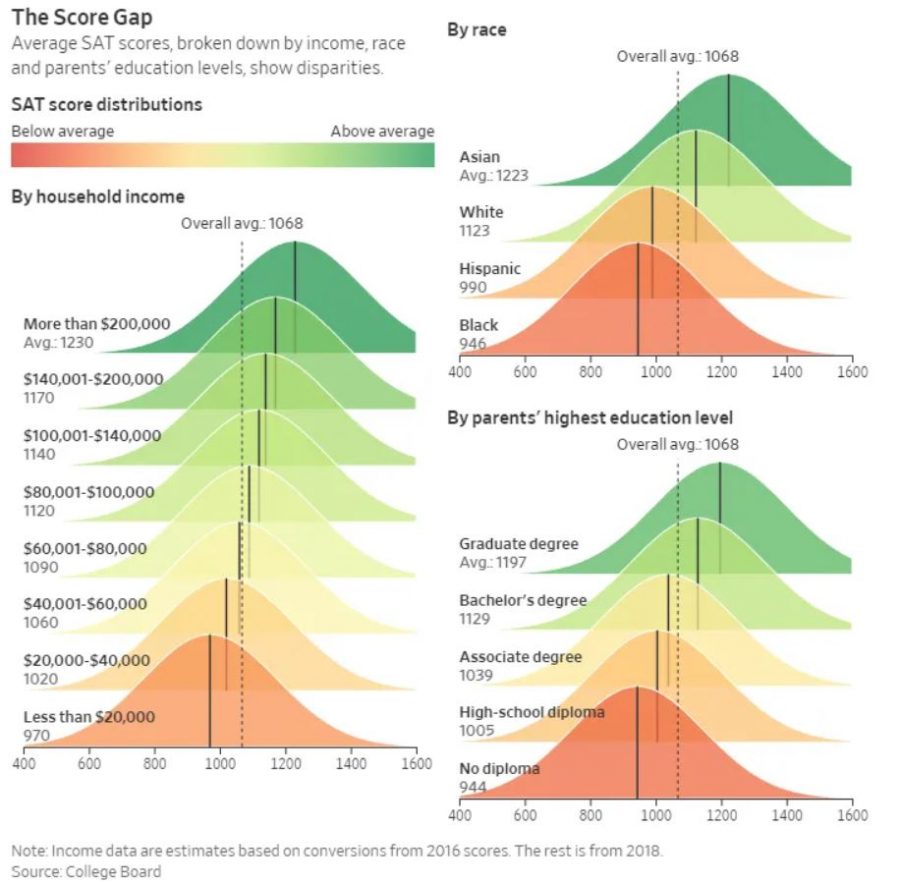Students share opinions on College Board’s effect on admissions process
The graphic shows the SAT score distributions from 2016 and 2018, revealing average scores based on household income, race, and parents’ highest education level. Source: College Board
May 2, 2021
Whether it be through AP classes or the SAT, most students have heard of College Board in one way or another. College Board is a non-profit organization that was formed in 1899 to expand access to higher education. It represents over 6,000 of the world’s colleges, schools and other educational organizations.
However, since College Board charges money for taking their tests and sending scores to colleges, many students have been led to believe that the organization is actually monopolizing the admissions process for higher education.
“College Board takes over too many aspects of schooling, especially in the later years of high school,” junior Arvind Ramesh said. “For example, College Board offers AP classes that also contain AP exams that are often ridiculously difficult compared to the actual course that is offered. It’s almost like they want you to fail in order to retake the exam, so that they will get more money in their pockets.”
Each AP exam costs $95 in the U.S. after a student exceeds their number of free exams paid by the school, and not only are these tests expensive, but they can also put pressure on the student taking the tests as well. Additionally, since no two colleges are the same, no two colleges will look at your test scores and AP classes the same. This can frustrate students as it all depends on the college on how they view your scores and grades.
The SAT costs $52, and before the pandemic, almost all colleges required an SAT score from an applicant, pressuring students to take the SAT and ultimately pay College Board.
“If [students] don’t take the SAT, [they] are not even considered by many colleges,” Ramesh said. “This is a problem; this is exactly what a monopoly is; it preys on the less fortunate.”
Upon receiving a score, College Board indicates whether a student could’ve earned a score 40 points lower or higher, depending on the curve of the test they took. This means that two students who get the same number of questions wrong in each section could have different scores solely based on the day they took the test. In hopes of receiving a better score, students are pressured to retake the test and repeatedly pay College Board.
In addition, students from low-income families may only be able to take this exam a limited number of times, leaving them at a disadvantage to those who are economically comfortable.
“I believe that College Board tends to favor more financially stable households,” junior Kirsten Park said. “This is because families with more money are able to spend more on their kids’ College Board exams and SATs.”



